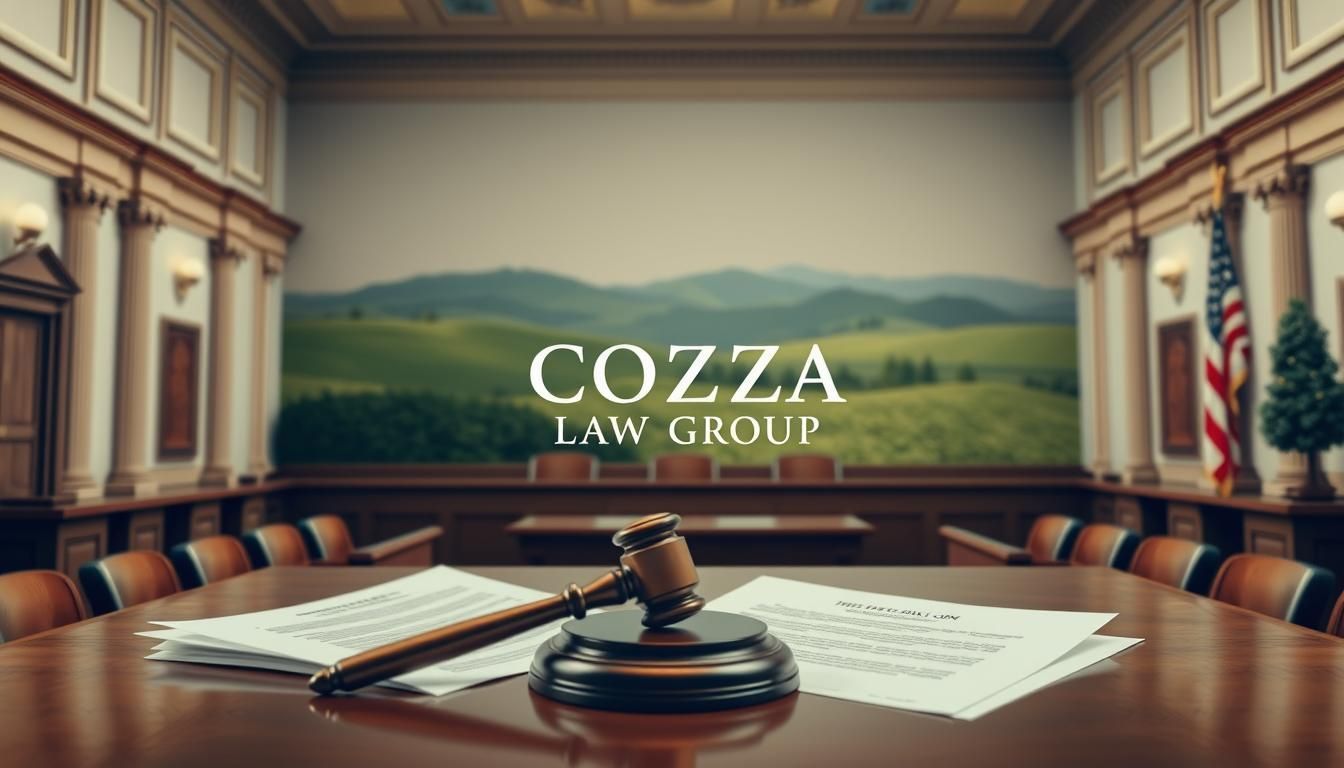Estate Planning In Pennsylvania: Essential Tips

In Pennsylvania, a Power of Attorney (POA) lets someone, the principal, give legal power to another, the agent. This person can then act on their behalf in many areas. This includes selling property or making important healthcare choices. It's key that the person making the POA is mentally fit for it to be legal.
The POA can start right away or wait for a certain event. Revoking a POA is easy; you just need to tell the agent and others who need to know. If the person making the POA dies or gets a divorce and their spouse was the agent, the POA ends automatically.
For a POA to be valid in Pennsylvania, it must meet certain legal standards. It also needs specific language. This makes sure the document is good to go.
Key Takeaways
- Most Powers of Attorney in Pennsylvania must include specific language to be valid.
- A POA can designate more than one person as an agent and can include a successor agent.
- POAs can be specified to take effect at a future date or upon a designated event.
- A Power of Attorney can be revoked by a written notice or expiration date.
- Automatic termination of a POA occurs upon the principal’s death or if a divorce is filed, with the spouse as an agent.
- In Pennsylvania, a POA is typically durable unless explicitly stated otherwise.
- Meeting specific legal and witness requirements is essential for a POA in Pennsylvania.
Understanding Power of Attorney in Pennsylvania
In Pennsylvania, a Power of Attorney is a legal document. It lets an agent make decisions for the principal. The document must follow state laws closely. This ensures the agent has the right authority.
What is a Power of Attorney?
A Power of Attorney (POA) is a key legal document in Pennsylvania. It lets a principal choose someone to make decisions for them. This can include financial, legal, and healthcare decisions. The POA must be written, dated, signed, and witnessed by two people and a notary public to be valid.
There are different types of Power of Attorney in Pennsylvania:
- General Power of Attorney: Gives the agent wide authority over the principal's affairs.
- Limited Power of Attorney: Allows the agent to do specific tasks or for a certain time.
- Springing Power of Attorney: Activates when a specific event happens, like the principal becoming incapacitated.
- Durable Power of Attorney: Stays valid even if the principal can't make decisions, managing their affairs.
Who Can Be an Agent?
Choosing the right agent for a Power of Attorney in Pennsylvania is crucial. The principal should pick someone they trust who knows their values. The agent must act with the principal's best interests in mind. The document should state how agents will work together.
Agents have many responsibilities. They need to:
- Keep track of financial dealings.
- Act honestly and put the principal's interests first.
- Work with healthcare decision-makers and others.
- Follow the principal's wishes, avoiding personal interests.
The agent can only act if the principal is mentally able. If the principal loses mental capacity, the POA's terms decide if it's still valid. A Durable Power of Attorney in Pennsylvania ensures the agent can continue to act even if the principal's mental abilities decline.
Overall, Pennsylvania's legal documents and laws protect the principal and give the agent the power to manage the principal's affairs well.
Types of Power of Attorney in Pennsylvania
In Pennsylvania, there are several types of Power of Attorney (POA), each with its own purpose. Knowing about these can help you make smart choices for your legal and financial matters.
Durable vs. Nondurable Power of Attorney
A Durable power of attorney Pennsylvania stays valid even if the person giving it can't make decisions anymore. This is different from a nondurable Power of Attorney, which ends if the person can't make decisions. Since December 16, 1992, all POAs in Pennsylvania are seen as durable unless they say otherwise.
Medical Power of Attorney
A Medical power of attorney Pennsylvania lets someone make health care choices for the person giving it. They can agree to treatments and look at medical records, following HIPAA rules. This kind of POA is key to making sure the person's health wishes are followed when they can't speak for themselves.
Financial Power of Attorney
A Financial power of attorney Pennsylvania lets someone handle the financial matters of the person giving it. They can manage bank accounts, sign checks, and make investment choices. It's important for keeping the person's finances stable when they can't manage them themselves.
Springing Power of Attorney
A Springing Power of Attorney only kicks in under certain conditions, usually when the person giving it can't make decisions anymore. The person can set rules for when this POA takes effect, giving flexibility and protection.
Understanding these Power of Attorney types helps you plan for different situations. It ensures your legal, health care, and financial choices are made as you wish in Pennsylvania.
Legal Requirements for Power of Attorney in Pennsylvania
It's key to know the legal rules for a power of attorney in Pennsylvania. Act 95 changed Chapter 56 of Title 20 of the Pennsylvania Consolidated Statutes. These rules protect the person giving the power and explain the agent's duties.
Signing and Notarization
Since January 1, 2015, a power of attorney in Pennsylvania needs a notary and two adult witnesses. Notarization makes sure the document is real and the person giving the power meant to give it to the agent. If someone can't sign, another person can do it for them, but only with two witnesses there.
Signatures must be dated, and everyone signing must be over 18. These steps are part of the legal rules for power of attorney in Pennsylvania.
Witness Requirements
The two witnesses are key to making a power of attorney valid. They can't be the agent or anyone signing for the principal. This rule stops any possible conflicts of interest.
The document must have certain notices and acknowledgments. This includes a notice for the principal and an acknowledgment by the agent. These things started being needed on January 1, 2015. They show how important it is to follow the legal rules for power of attorney in Pennsylvania.
How to Create a Power of Attorney in Pennsylvania
Creating a Power of Attorney (POA) in Pennsylvania lets a trusted person manage your legal and financial matters for you. This is important if you can't make decisions yourself. Here's how to make a POA that fits your needs:
Steps to Drafting the Document
To make a POA in Pennsylvania, follow these steps carefully:
- Determine the Agent: Pick someone you trust to take care of your affairs. They can work alone or with others.
- Select the Type of POA: Choose the right kind of POA, like financial, healthcare, durable, or springing POA.
- Complete the Form: Fill out the POA form correctly, making sure you include all important details.
- Signature Requirements: Sign the POA in front of a notary public, as the law says.
- Witnesses: Get the POA witnessed as the law demands.
- Document Copies: Keep several copies of the signed and notarized POA for important people.
- Inform Relevant Parties:Tell banks, healthcare providers, and others about the POA.
- Avoid Common Pitfalls:Talk to a lawyer to make sure you follow the law and avoid mistakes.
By following these steps, your POA will be legal and help manage your affairs smoothly.
Professional Assistance
While you can make a POA on your own, getting Professional Assistance from experts like Cozza Law Group PLLC is a good idea. Pennsylvania's laws are complex, and there's no standard form for financial POAs. A lawyer can make sure your POA meets all legal requirements and includes the right language. Getting Professional Assistance means your document will be strong and fit your needs perfectly.
Working with a legal expert to draft your POA in Pennsylvania makes your document more effective. It also gives you peace of mind, knowing everything is done right.
Advantages of Having a Power of Attorney
Having a Power of Attorney (POA) in Pennsylvania brings many benefits, especially in estate planning. It gives you peace of mind. You know someone you trust can handle your finances and medical care if you can't.
A POA ensures your assets and healthcare choices are managed smoothly. It prevents problems and delays that might happen without an agent. By choosing your agent, you keep control over who looks after your interests. This helps avoid court-appointed guardianships that might not be what you want.
Getting a POA is easy in Pennsylvania, needing only a notary and witnesses. Many people pick a family member or friend they trust. Trust is key, especially if the agent will manage your money. But, not all POAs work out well. For example, conflicts can happen when one child is chosen over others, and not all agents are good with money.
Still, making a POA is a smart move for peace of mind and good estate planning in Pennsylvania. It protects your interests and prepares your loved ones to make important decisions without legal worries.
Conclusion
Understanding and using a Power of Attorney in Pennsylvania is key to good estate planning. It makes sure someone you trust can handle your affairs if you can't. After July 1, 2015, financial Power of Attorney documents need special "NOTICE" language to be valid.
If you don't include the Notice Page or it's not signed, your Power of Attorney might not work. Banks and real estate companies could refuse to accept it. Also, if you have a Power of Attorney from another state, Pennsylvania usually accepts it, but you must follow the law.
To cancel a Power of Attorney in Pennsylvania, you need a new document saying you want to cancel it. It must be signed and notarized. You should tell everyone who needs to know, like banks and doctors, to stop any misuse. If you're changing your POA, make a new one that clearly says it's replacing the old one.
It's best to talk to an estate planning lawyer, like ours at Cozza Law Group PLLC, for help. We can make sure everything is done right and fits your situation. This way, you can protect your legal and financial future.




